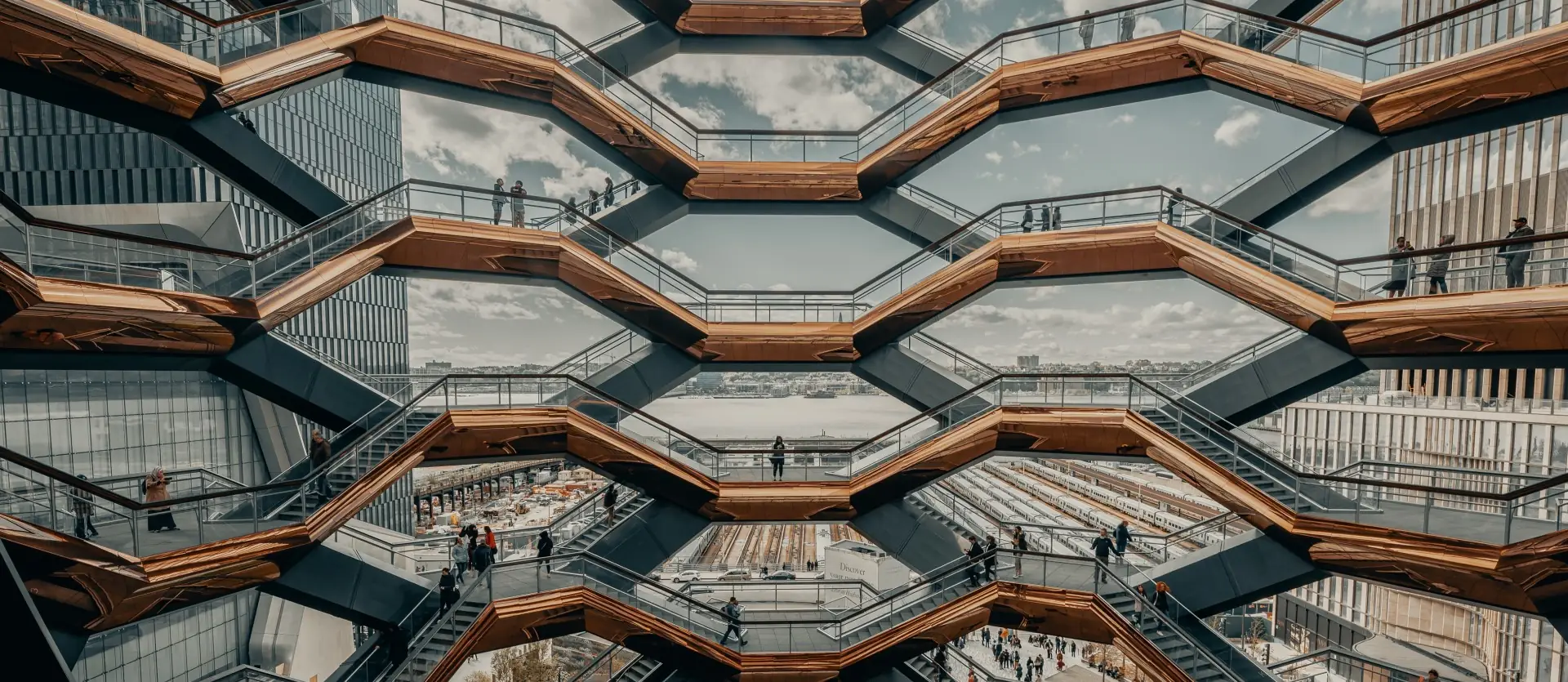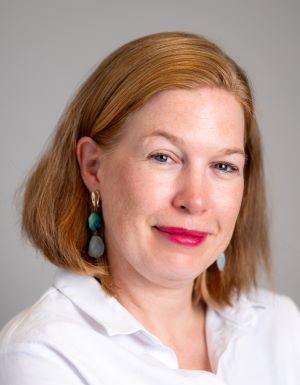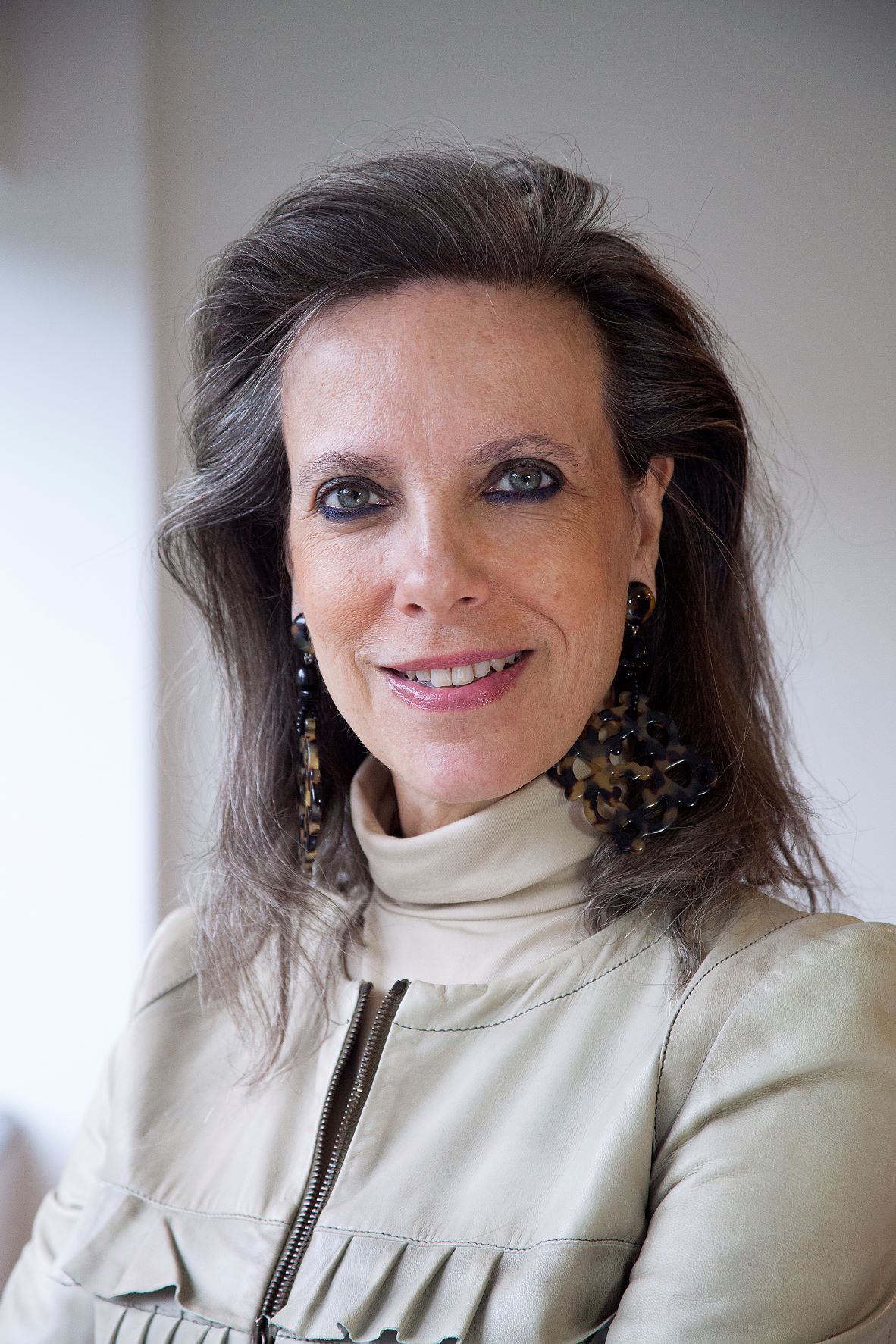Agile ecosystems; hype or necessity?
Rapid changes in the world are having an increasing impact on organizational and production processes. Agility is more crucial than ever, as is building a sustainable ecosystem of partners with whom you are willing to share your knowledge, technology and other resources.

In a world that places stricter requirements on sustainability and social responsibility, and where international and geopolitical events often have an instant impact on organizational and production processes, a new vision for sourcing is crucial. You can help by contributing to this research conducted by Prof. Désirée van Gorp, which focuses on a new approach: building an ecosystem to guarantee the organization’s agility and continuity.
Why this research is important
“Leadership at all levels of the organization should be focused on staying relevant in the future with a positive contribution to society. To that end, working in ecosystems that encourage innovation - from social to digital - is essential.”
Prof. Dr. Désirée van Gorp
Professor of International Business, Nyenrode Business University
Five questions for Désirée van Gorp
1. An ecosystem for sourcing issues: what does that entail?
According to professor Désirée van Gorp “we are all familiar with ecosystems in nature. Today, the concept of the ecosystem is also gaining ground in building sustainable value chains. Companies that want to stay relevant need to be agile and combine this with ecosystem thinking when deciding on ownership sourcing issues while reflecting on what do you outsource, and what do you do keep inhouse. In an ecosystem, every part of the system has its own unique value. By working together, you will be able to better deal with changes and quickly adapt your ecosystem to deal with new circumstances. Though it requires trust, cooperation based on shared norms and values, and a shared vision of the future.”
2. Why is this relevant?
“In our global village, we see that a lot of an organization’s activities are split up and spread all over the world. On the one hand, that presents opportunities, for example to bind new clients or suppliers, to access talent elsewhere in the world, and to make value chains less vulnerable. On the other, however, we’ve seen how geopolitics and other international developments can quickly make value chains vulnerable due to acute changes in customer’s needs, a pandemic, trade wars, the challenges in the relationship with China, and technological innovations.
"A properly functioning ecosystem would be better able to deal with developments."
These developments could have an impact on your business strategy within as little as 24 hours. A properly functioning ecosystem would be better able to deal with these developments. The parts of the ecosystem can take on larger or smaller roles, depending on the changing circumstances.”
3. How do you build an ecosystem?
“According to the academic literature on the topic, a sourcing ecosystem works best when every part knows what they can obtain from the collaboration. But also when everyone has a shared set of norms and values within the partnership. Society is demanding more and more social relevance from companies, so those shared norms and values, a shared mission, are extremely important. That sometimes means having to make painful decisions when a system or a part of a system doesn’t do certain things anymore. Like deciding to stop serving a particular market. Giving up something in the short term to remain valuable over the long term.
“I am convinced that investments in making your ecosystem more manoeuvrable and sustainable will pay dividends over the longer term.”
One good example is the company Puma, which has set the goal of producing its products in a way that is friendly to the environment and to people. That has had a lot of consequences for their operations over the years. Many of the partners in the Puma ecosystem have fallen away and been replaced by others that do support Puma’s mission. That cost the company money and effort, but Puma is willing to pay the price. And Puma’s supporters - its employees, its customers and society at large - greatly appreciate the company for that. I am absolutely convinced that investments in making your ecosystem more manoeuvrable and sustainable will pay dividends over the longer term.”
4. Does that mean that your responsibility as an entrepreneur needs to change too?
“Absolutely. When employees of a garment factory in Bangladesh die due to the poor working conditions, then it’s your responsibility as a clothing brand at the end of the chain. If Amsterdam requires all cars to be electric starting from 2030, then the municipality will also have to think about what that means for other parties within the ecosystem. It might lead to healthier air in the city, but it doesn’t take responsibility for the environmental damage and poor working conditions in the parts of the world where the cars’ batteries are built or recycled.
“Governments and citizens will increasingly hold organizations accountable.”
Governments and citizens will increasingly hold organizations accountable for these kinds of decisions, and judge them accordingly. If you’ve built a healthy ecosystem around you, then you’ll be much better able to answer these challenges.”
5. What will the research offer when it is completed?
“My research focuses on the factors that make an ecosystem truly successful. What are the best practices, what can we learn from them, and how can we apply those lessons to other sectors and contexts? There has been relatively little academic research conducted from that perspective in the area of sourcing issues.
So at Nyenrode, we can truly lead the way. How can you build a sustainable ecosystem and create manoeuvrability and internal cohesion? How can you work together to become more innovative? The answers to questions like these give organizations a huge competitive advantage and make them more future-proof. Those insights can also make a difference for important social systems, from health care and energy to mobility. Financial support for this research will enable us to study more cases and formulate a sharper image of how an ecosystem can function optimally.”
About the researcher
Prof. Dr. Désirée van Gorp is a professor at Nyenrode Business University. She is affiliated with the Nyenrode Faculty Expertise Centre Entrepreneurship, Governance & Stewardship.
Van Gorp has taught courses in the BScBA program, the MSc program, the Executive MBA, full-time MBA, Modular MBA and a variety of executive education programmes, and she advises the board, management and labour unions in her field of expertise. She has been named Professor of the Year several times in the past.
Impact case
Désirée van Gorp previously published the impact case 'Ecosystem thinking as a new global sourcing strategy'. In this case, she elaborates on how global sourcing has evolved and impacted citizens, businesses, and countries. She emphasizes the joint responsibility of all stakeholders involved to make global value chains sustainable.
Support our research for a sustainable world.
Would you like to join us in contributing to a sustainable world? Then please donate to Stichting Nyenrode Fonds (Nyenrode Fund Foundation), so that we can continue to finance studies like these. We are a private university, and do not receive funding from the government. We depend entirely on private donations from our community.
With your support, we can appoint a young academic professional to conduct this research. By supporting us, you can help Nyenrode while offering young talent the chance to take the next step in their academic career.
If you would like to contribute, or if you have questions about the options for making a donation, then please feel free to contact us.Contact
-
Christina Ceulemans
Job title Sr. relations manager fundraiserPhone number +31 (0) 682 607 913Email address Send me an email

